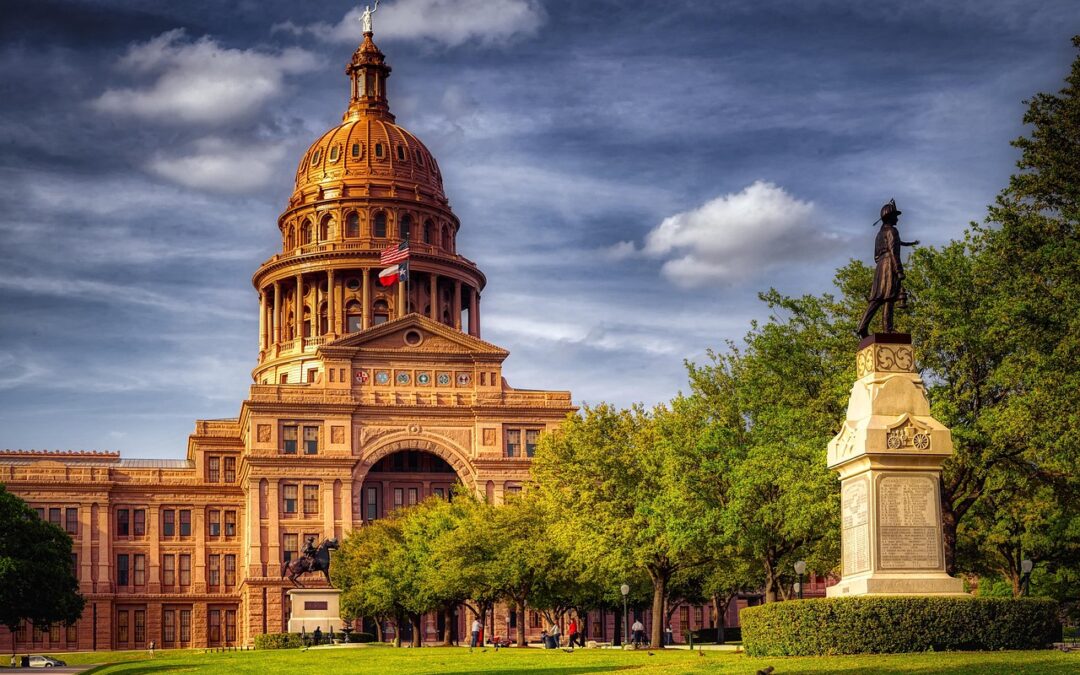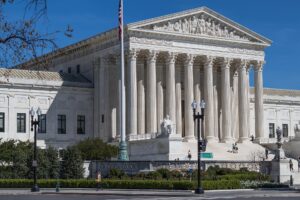Last week, the U.S. Supreme Court delivered an important ruling in Free Speech Coalition v. Paxton, upholding Texas’ age-verification law for online pornography. This decision is a huge win for families across the nation, and for our ongoing efforts right here in Pennsylvania to protect children from the predatory reach of the porn industry.
Pennsylvania Family Institute was proud to stand alongside Minnesota Family Council, Kansas Family Voice, and thirty-one other family policy organizations nationwide in filing an amicus brief urging the Court to uphold this common-sense law. The amicus brief highlighted the undeniable harm pornography inflicts on children. This harm has only intensified in today’s digital age.
A compelling interest: protecting kids
The Supreme Court decisively affirmed that states have both the right and a compelling interest to shield children from online sexual content. The majority opinion called Texas’ interest in protecting kids from pornography not only “important,” but “even compelling.” The Court made clear:
“It follows that no person—adult or child—has a First Amendment right to access speech that is obscene to minors without first submitting proof of age.”
This is a clear validation of what Pennsylvania parents have long demanded—real safeguards to keep explicit content out of children’s hands.
Why it matters so urgently in Pennsylvania
Today’s internet is not the same as it was even a decade ago. Smartphones have given kids 24/7 access to the online world. And with that comes unprecedented access to pornography. Studies show one in four children is exposed to porn by age 12, with children as young as seven stumbling across explicit content. Worse still, over half of these exposures happen by accident, often through misleading links or pop-ups while kids are browsing innocent sites.
Viewing pornographic material at any age is damaging. For children, the consequences are even more severe: porn creates a distorted, often violent view of sex, teaches them to objectify others, and can fuel lifelong addictions. Brain scans have even shown porn affects the brain similarly to addictive drugs.
This is why legislation like the age-verification law sponsored by Rep. Jill Cooper (R-Westmoreland) and Rep. Johanny Cepeda-Freytiz (D-Berks) in the House and Sen. Cris Dush (R-Cameron) and Sen. Judy Ward (R- Blair) in the Senate is so critical. It would require online porn sites to use significant, established measures to verify age before granting access, closing the digital “front-door” that currently leaves kids unprotected within their own homes. Following this Supreme Court ruling, Pennsylvania lawmakers have a clear constitutional path forward to advance Rep. Cooper’s bill.
What the Court’s decision means for Pennsylvania
The Supreme Court’s decision in Paxton sweeps aside the primary legal objections raised by the porn industry, who profits off of these children, paving the way for Pennsylvania to move ahead boldly. The ruling recognizes that age verification online serves the same legitimate purpose as checking IDs in person to buy alcohol or cigarettes. As the opinion put it:
“An age-verification requirement is an ordinary and appropriate means of enforcing an age limit, as is evident … from the long, widespread, and unchallenged practice of requiring age verification for in-person sales.”
In other words, it’s entirely reasonable, and constitutional, for states to require online porn sites to keep minors out, just as brick-and-mortar stores must to keep harmful products out of kids’ hands.
Standing with families across America
As the amicus brief from True North Legal stressed, this is not just a Texas issue. Legislators across the country, Republicans and Democrats alike, are recognizing that online pornography poses a grave threat to the long-term health and safety of children. That’s why 23 states have already enacted similar age-verification laws, often with broad bipartisan support. In Louisiana, the first state to pass such a law, traffic to the world’s largest porn site dropped by 80%. This is a striking testament to the effectiveness of these protections.
Pennsylvania Family Institute will continue to champion these safeguards in Harrisburg, ensuring Pennsylvania kids have the same protection already afforded to children in so many other states.
“Our children deserve robust safeguards”
The ruling also strongly aligns with the concerns we’ve long voiced here in Pennsylvania. As Lauren Hackett, Legal Counsel at Independence Law Center, noted, “This landmark decision recognizes the state’s interest in protecting minors from online pornography’s proven dangers. Pennsylvania lawmakers now have a constitutional path forward to pass ID verification legislation, reflecting a shared commitment to the health and safety of our children.”
And Alexis Sneller, Policy Analyst at PA Family Council, underscored why this moment matters so much: “With nearly one in four children encountering pornography by age 12, Pennsylvania’s proposed age verification bill is both timely and essential. This ruling provides additional momentum to prioritize child safety across our state.”
Next steps: urging action in Harrisburg
In light of this ruling, it’s time for Pennsylvania legislators to act. With bipartisan support building nationally and a strong constitutional green light from the Supreme Court, there’s no excuse to delay. Every day, without these protections, more Pennsylvania children are at risk of exposure to harmful, addictive, and deeply distorting material online. We invite every concerned Pennsylvanian to contact your lawmakers today and urge them to advance both age-verification bills: HB 1513 and SB 603. Together, we can take decisive steps to safeguard our children’s mental, emotional, and relational well-being—and push back against an industry that profits from exploiting innocence.



